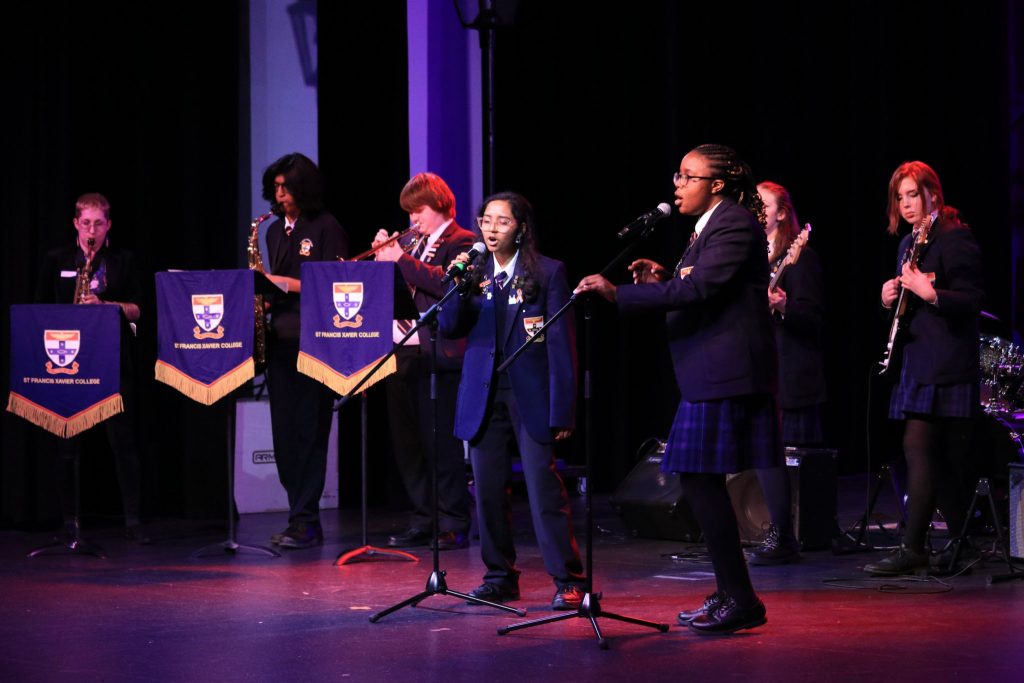Benefits of Performing Arts: How Performance Improves Student Experience
Tuesday 23rd July 2024
Being in school helps students to engage with a variety of learning opportunities. Students experience intellectual growth in the classroom while also benefiting from emotional and social growth through their communities.
When students get involved in activities such as drama, music and dance, it does more than just teach them how to perform — it helps them think better, understand their own and others’ feelings, and make connections. By taking part in performing arts, students learn how to be creative, confident, and work well in a team.
When students are surrounded by this kind of environment, their cognitive, motor, and social skills develop quicker and they are more open to trying new things, making them braver and more capable to tackle challenges.
What are performing arts?
Performing arts is an area of creative expression that involves displaying different artistic endeavours in front of an audience. The types of art people may perform include dance, music, theatre, comedy and many more. These performances take many forms like live shows and concerts, and often make use of costumes, instruments and props to engage the audience. By participating in performing arts, students can express themselves and pursue their unique passions.
Benefits of performing arts for students
Confidence and self esteem
Studies have shown that a performing arts education enhances both confidence and feelings of self-worth. When students practise a dance routine over and over or repeatedly play the same song at band practice, they build up confidence within themselves and their performing abilities. Additionally, when students connect with like-minded people in the art of their choice, they tend to meet new friends with similar interests, which helps them expand their social circle at a young age, boosting their self-esteem. By learning these abilities, students will go about their academic education with more assurance of their abilities.
Quick-thinking and problem solving
Time in the performing arts teaches students not to be afraid of messing up, particularly when trying something new is regarded as its own kind of success. Students are encouraged to try out different characters or learn multiple instruments to diversify their skills. There is often improvisation involved in arts, particularly with things like drama and theatre, helping students to apply problem solving skills to overcome a variety of scenarios. Rather than dwelling on something that has gone wrong, students can learn to quickly resolve and move forward.
Concentration and focus
Learning a new script, dance routine or song motivates students to concentrate and requires skills that engage the mind, body, and voice. For instance, the mental exercise of memorising and recalling information during performances sharpens focus and enhances cognitive flexibility. Regular participation in performing arts not only continuously improves a student’s memory capacity but also develops their mindfulness, multitasking skills, and emotional expression.
Expression and imagination
As mentioned above, emotional expression is a huge benefit for those in the performing arts. Through role play or drama exercises, students understand how to portray emotions, personalities, and specific characters, offering them a deeper connection to self-expression. Knowing how to relate to a variety of situations and cultures encourages empathy and compassion. In a creative performing arts environment, they have the chance to let their imagination roam free and take on new identities that differ from their own.
Communication and observing
There is verbal and non-verbal communication in the performing arts world. Students pay attention to vocal articulation in singing, facial expressions in dancing, body language in acting, and conducting in music. Participation in this environment ensures growth in observing and the ability to collaborate easier with their peers.
Teamwork and growth
One of the most crucial benefits of performing arts is the emphasis on teamwork. A successful show depends on a cohesive team, each member working together towards a shared goal. Performing arts teach students to commit fully and collaborate effectively to bring their artistic vision to life. Participating in performing arts allows students to bond with their peers, fostering a sense of connection within their social communities and promoting growth in their personal lives.
Performing arts education at St Francis Xavier College
Students can begin exploring the performing arts at Year 7 with Music, which can also be done as an elective in Years 8, 9 and 10, along with Dance and Music Performance. Our Years 8 and 9 students can also enrol in a Performing Arts Extension Academy to have dedicated time and instruction in their craft. Students in Year 7-10 are also welcome to audition for the College Play, an annual performance held at the beginning of Term 4.
Additionally, students can join a number of vocal or musical ensembles and concert bands at all levels of schooling.
In the Senior years, students can opt to study a variety of performing arts courses at VCE level, with Dance, Drama, Music and Theatre Studies all available. The annual College Production gives students the opportunity to perform for large crowds with professional lighting and sound, while also going through a rigorous and fun rehearsal program. All students can also apply to perform in our annual Cabaret Night and Instrumental Music Performance Evening. For more information, have a look at our Junior Curriculum and Senior Curriculum booklets.
Performance for growth
A student in the performing arts has the potential to really find themselves and their passion as they see the world in a whole new way. Here at St Francis Xavier College, we value this highly and proudly offer a variety of opportunities to help students pursue their passions and craft a unique pathway for their education.
